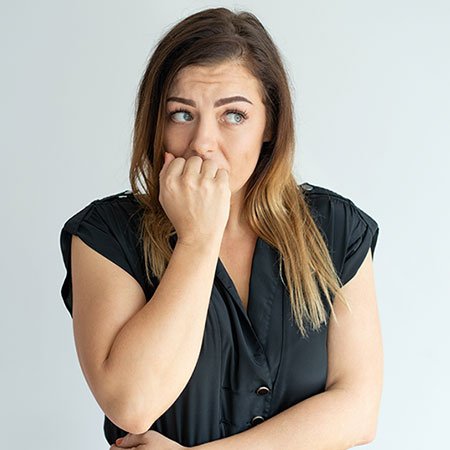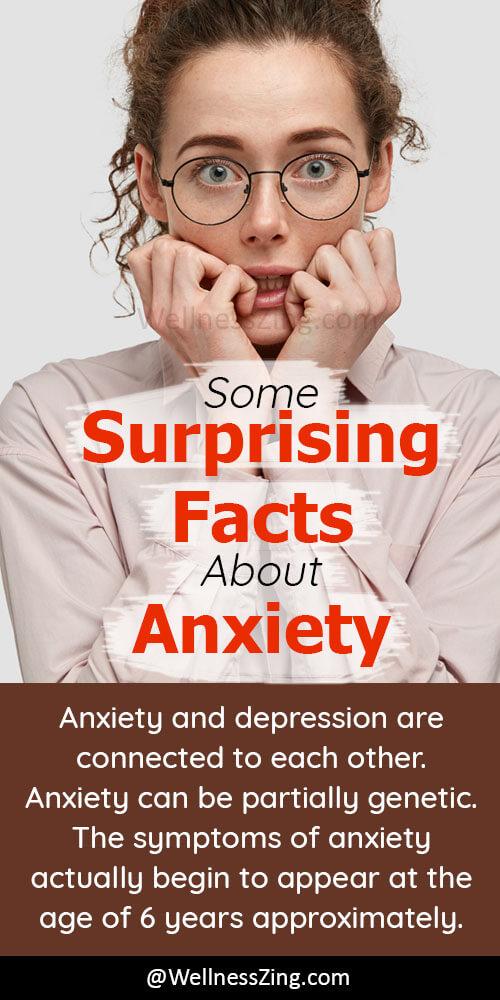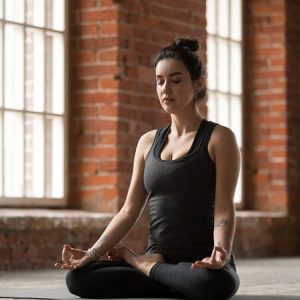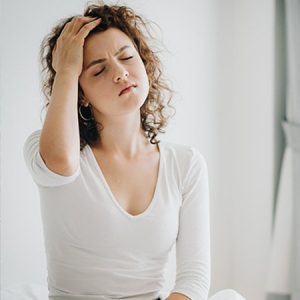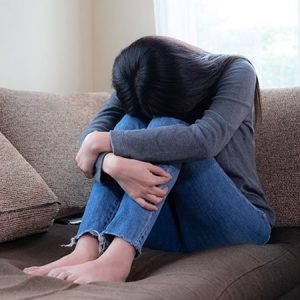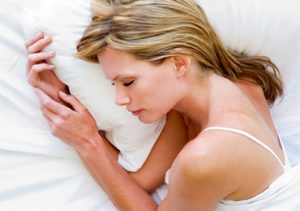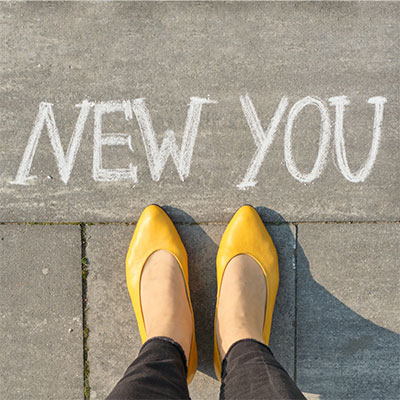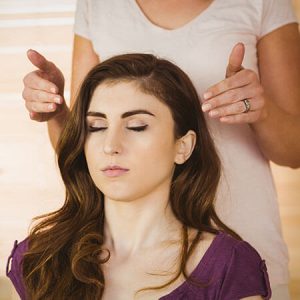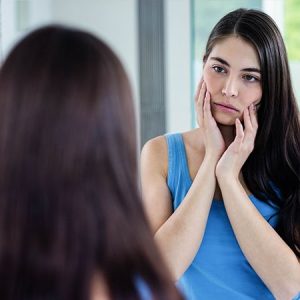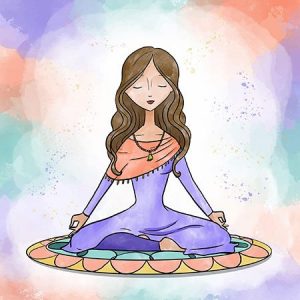Anxiety Disorder – Is it something Serious?
“Living with Anxiety is like being followed by a voice. It knows all your insecurities and uses them against you. It gets to the point when it’s the loudest voice in the room. The only one you can hear.”
Yes, the fact is, everyone comes with the feeling of nervousness, stress, tension, and anxiety at different times. It includes the feel of distress, uneasiness, and even worry. Anxiety is a disorder that is experienced on every level like physical, emotional, and cognitive. It feels you with all negative thoughts and ideas which is quite disturbing. One can also move out of control emotionally while feeling anxious.
What Is Anxiety?
Anxiety develops from ‘Stress’. It can be understood in another way that anxiety is the natural response mechanism of the body to face stress. When you feel stressful, your heart starts to race at a rapid pace. You would notice your palms becoming sweaty at the time when you have to confront a challenging event, or work.
Some of the events that can make a person anxious are: joining a new job, facing an interview, meeting the family of your partner, presenting an act on stage in front of several people, etc. The symptoms of anxiety are generally short-lived. They subside once the anticipated event is over.
However, in some cases, anxiety can be long-term. Examples of it are constant worrying about future. Repeated thoughts coming in mind like – ‘what will happen in the future’, ‘when will I get job’, ‘what will be the future of my children’, ‘when will the disease be cured’, ‘when will my daughter will get married,’ etc. All these situations can lead to long-term anxiety.
When anxiety persists for a longer-time then it can do a lot of harm to the body on mental, emotional and physical levels. That is the reason it is very much important to learn the skill / technique to manage anxiety.
Different people can have different triggers that makes them anxious. Identifying those triggers is an important way to cope up and manage anxiety attacks. Being self-aware of how your body reacts to different triggers and ways to calm your mental and physical body at that critical time is called anxiety management.
When you learn how to relax your mind and emotions, you can deal with any situation easily. You develop an incredible power and strength within you that makes you unshakeable.
Anxiety disorder also comes with some physical symptoms like panic attacks, trembling, sweating, nausea, and many more, which makes it difficult for the individual to manage the situation. Again, long term anxiety disorder can also lead to other health issues like heart issues, chronic respiratory disease, diabetes, gastrointestinal conditions, substance abuse, and much more.
Hence, the severity of anxiety depends on the situation you are facing, the factors, and the symptoms.
Some surprising facts about Anxiety
- Anxiety at times can be healthy and normal. It is very normal to feel anxious while performing or before any big day or time. Hence, having anxiety in such situations is normal. If it appears for daily activities, it is an anxiety disorder.
- The symptoms of anxiety actually begin to appear at the age of 6 years approximately when the children are developing verbal skills.
- Anxiety can be partially genetic. The disorder can appear in any of the family members who have suffered from it. Also, having too much stress in life or trauma can lead to anxiety.
- Compared to men, women are more sensitive and are prone to face stress. This means they are more likely to suffer from an anxiety disorder than men.
- According to research, chronic anxiety can also increase the chances of having heart diseases, substance abuse, gastrointestinal conditions, chronic respiratory disease, and diabetes. It hinders the function of the lungs and heart.
- Anxiety and depression are connected to each other. People suffering from anxiety are also triggered by depression. Again, if you are having any depression case in your family, the chances of having anxiety also increase.
- There are some physical symptoms of anxiety-like hot flashes, nausea, increased heart rate, breath shortness, weakness, dizziness, etc.
What are the signs of having anxiety?
As mentioned above, anxiety comes with particular physical symptoms. Here are some of the signs that would reveal you are suffering from anxiety.
- Worrying too much for any situation or individual not for a day but for months
- Feeling keyed up and restless
- Getting tired very easily
- Feeling it difficult to concentrate
- Going blank with your mind
- Getting irritated quickly
- Having sore muscles or tensed
- Insomnia, staying asleep, unsatisfied sleep, or difficulty in sleeping
- Making too much of plans
- Dealing with too much of list-making
- Looking for reassurance from other people
Hence, if you are feeling threatened when some fears you, it is not an anxiety disorder. This can also be helpful for you to fight against fear. However, if you are facing situations similar to the list above for months, you surely are suffering from an anxiety disorder.
What are the different types of Anxiety Disorders?
When it comes to anxiety disorders, there are mainly 5 different types in the list. Here are they:
1. Generalized Anxiety Disorder
Also known as GAD, Generalized Anxiety Disorder is an occasional anxiety disorder that is quite expected to appear in your life. The situations in this category include stress at work, making important decisions, exams pressure, etc. This is a situation when the individual faces temporary fear or worry which would fade away once the situation passes. Again, there are chances the situation can also worsen at times.
2. Obsessive-Compulsive Disorder
Obsessive-Compulsive Disorder or say OCD is an anxiety disorder that is categorized through obsessions and compulsions. Repetitive behaviors like counting, washing hands, cleaning, counting, etc. when carried out, again and again, can be a sign of OCD. However, when such tasks are performed for a limited time period is fine. But when carried out again and again, it increases anxiety levels.
3. Panic Disorder
Panic Disorder is an anxiety disorder that is much similar to OCD. The disorder is categorized through repeated and unexpected episodes of too much fear or anxiousness which is accompanied by other physical symptoms like chest pain, breath shortness, heart palpitations, abdominal stress, and dizziness.
4. Post-Traumatic Stress Disorder
Popularly termed as PTSD, Post-Traumatic Stress Disorder usually develops the exposure of the patient to some event that is terrifying. This can also lead to physical harm or even threatening. The traumatic events which can lead to PTSD also include natural disasters, personal assaults that are violent, human-caused disasters, accidents, military combat, and much more.
5. Social Phobia
Social Anxiety Disorder or Social Phobia is one of the anxiety disorders that can be characterized by devastating anxiety as well as too much self-consciousness for day to day social situations. Social Phobia can either be limited to a single situation like fear of communicating in any formal or casual situation to multiple situations like drinking with others, eating with others, and much more. The situations can be severe depending on the symptoms as well as people around.
Hence, these are the different types of anxiety disorders the patients are usually suffering from.
What are the different ways to deal with Anxiety?
When most of the people suffer from anxiety, the first thing they do is visit the doctor immediately. However, there are some natural remedies that can help in controlling the situation and the disorder.
1. Wait, and have some air
Are you feeling anxious or nervous? In such a situation, rather than getting panicked, think about what is making you so nervous. Anxiety is basically related to getting worried about the events that take place in the future or past. Anxiety would lose its grip on your mind as soon as you stop thinking about what is making your nervous and return back to the present.
Hence, the next time you start feeling anxious, wait, and think. Regain your consciousness by sitting aside and take some air by deep breathes. This would help in gaining personal balance back to your life. For this, sit in a comfortable position, close your eyes, inhale and exhale fresh air deeply, and continue the same till you feel recovered from the nervousness. There are particular breathing exercises that come with effective relaxation techniques that help in calming the mind and body and returning to the relaxed state.
2. Know what is disturbing your mind
The physical symptoms related to anxiety include chest pain, trembling, and increased heartbeat. All these symptoms can easily help in detecting your anxiousness. But rather than dealing with these symptoms, it is better to get to the roots of the issue and figure it out. Hence, to deal with the anxiety, you need to learn what is disturbing your mind and dragging you towards anxiety. This can be done by exploring feelings and thoughts.
For getting to the roots, you can start writing a journal that would help in learning the various sources to your anxiety levels. If anxiety is not allowing you to sleep, you can also try to keep a journal or even a notepad next to the bed so you can write down everything that is bothering your mind. Talking with your friend or someone close to you is also another way of understanding and discovering the feeling of anxiousness.
3. Think what changes can you apply
There are times when anxiety roots due to some unknown fear that might have never taken place or might never even occur. Life is so unpredictable and can’t be controlled no matter whatever efforts you put on it. But to reduce its effects to a great extent, you can surely work in converting your fear to a powerful weapon for controlling the fear and concentrating on gratitude.
For this, look for replacing the fears to strength by working on your attitude towards the fear. By practicing the replacement, you can easily dump the anxiousness and add some positivity to your life. There are times when the actual circumstances would result in anxiety. So, look for the reasons leading to anxiety and work on the different ways to make changes for converting the anxiousness to some positive actions.
4. Divert your mind
Diverting the mind is yet another way of reducing the impact of anxiety on your life and focus on something else. Look for other positive activities that would help your mind to stop thinking about the current issues and relax. For this, you can look for some friendly company, workaround at your home, do something you are interested in, focus on your hobbies or other enjoyable activities, and much more.
This can also help in reducing the impact of chronic anxiety disorder through activities like listening to music, walking, physical exercises, organizing the house, drawing, writing, painting, book reading, watching movies, meditation, etc.
Apart from all these, aromatherapy is also quite popular for dealing with anxiety. For this, the use of particular essential oils, candles, or incense stick is carried out with favorable scents like sandalwood, chamomile, and lavender. The aromatherapy would activate the receptors of the brain and reduce the anxiety levels. Making changes in the diet or even looking for some supplements is quite effective for anxiety. For this, add ingredients like lemon balm, ashwagandha, Omega-3 fatty acids, valerian root, green tea, dark chocolate, etc. to your diet.
Some therapists also recommend going for Cognitive Behavioral Therapy or say CBT which helps in reducing anxiety. The therapy changes the negative behavior and patterns to positive before they corkscrew.
Lifestyle Tips To Manage Anxiety
Here are a few lifestyle tips that is helpful for people who face anxiety issues, or those who want to maintain their healthy mental state.
- Make relaxation techniques such as meditation, breathing exercises, music, yoga, etc. a part of daily routine. yoga, listen to music, meditate, get a massage, or learn relaxation techniques.
- Always eat well-balanced diet that includes healthy, and energy boosting snacks. Don’t skip your meals.
- Limit the level of caffeine, and alcohol as it can aggravate anxiety.
- Take adequate sleep to reduce stress levels in the body.
- Incorporate exercise in your daily routine to stay mentally and physically fit and healthy. You can even recruit an “exercise partner” to make your workout more interesting. Tell your partner to encourage you and motivate you to stay committed at the initial stages when you are new to the exercise routine.
- Accept the fact that somethings are not in your control. Do your best and maintain a positive outlook in life.
- Embrace humor in life.
- Become self-aware of your thoughts and be proactive to replace bad ones by the good ones.
- To be of help to someone is one of the best feelings in the world. Get involved in any charity service. When you serve the poor and deprived sections of the society then you earn good karmas. This act of kindness will make you feel good.
- Form your support group and discuss with them about your issues. Be open to receive assistance. Connect to a therapist, or physician for professional medical assistance.
- Identify self-help tools that can distract you from depressing thoughts. It could be an audiobook, podcasts, music, spiritual discourses etc.
Conclusion
Hence, if you are suffering from anxiety or nervousness, the best way to reduce it or deal with it is to divert your mind from the topic or issue that is disturbing and look for some positive feeling. If the symptoms worsen you can also look for some professional help who would suggest your particular medications and therapies as a treatment. Also, it is essential for patients suffering from anxiety to get proper sleep and nourishment to reduce anxiety levels. Connecting with other people or nature, and working on good things would always be helpful in reducing anxiety levels.
So, now are you ready to deal with anxiety in a healthy and secure way? Do share your comments and experiences with us.
